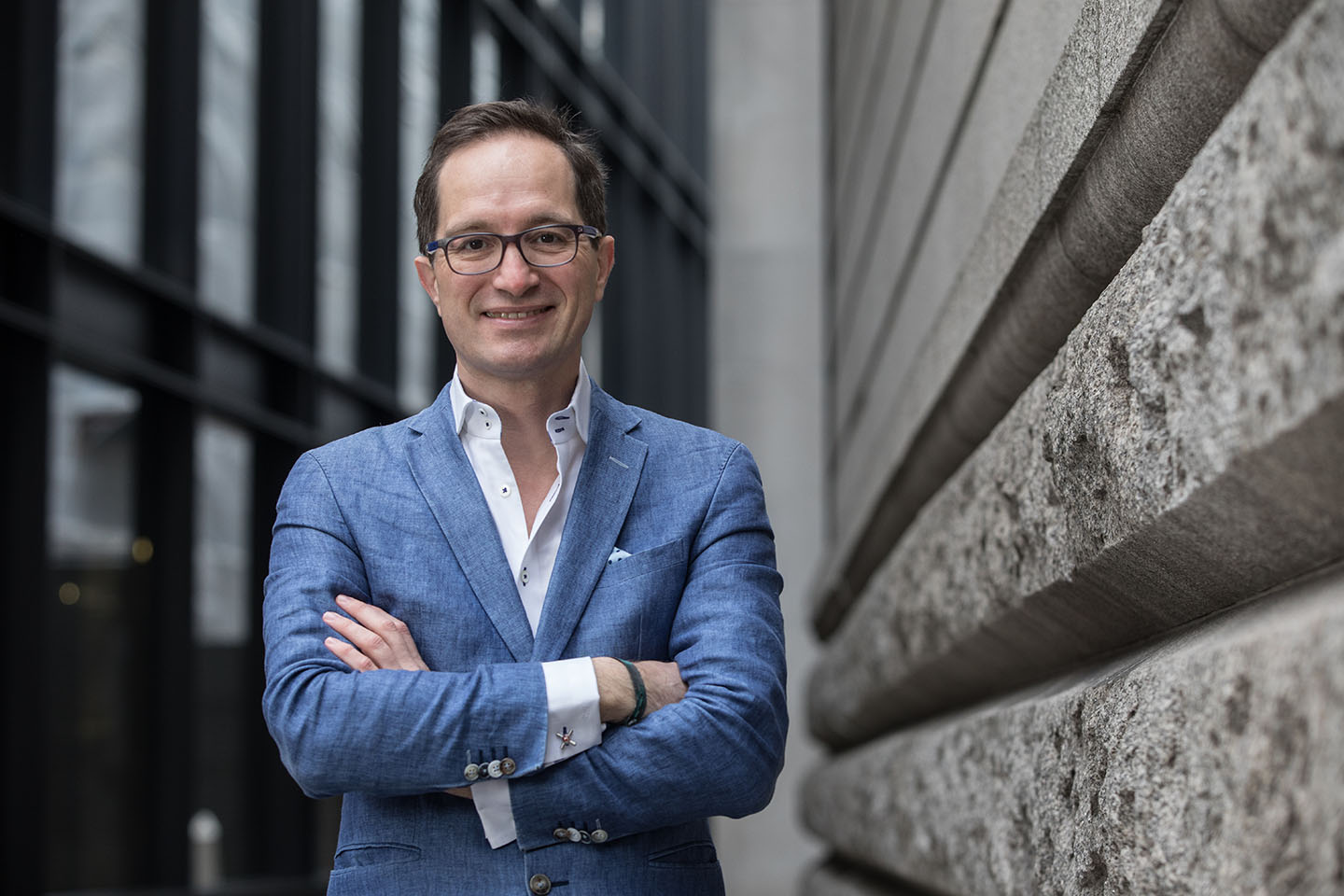Serial entrepreneur, writer and partner at Nexxworks, Peter Hinssen will be the keynote speaker at the opening of the academic year in the Aula today. What is his advice for students, employees and start-ups?
Peter Hinssen: "Each of my own companies were an enormous risk and a tremendous fight."
In your keynote speech you will discuss ‘the technologies of the day after tomorrow’. How do you, or anyone else, know what they will be? And what will they be?
“No one knows for certain what they will be. Some kid could be inventing some tool or platform right now that will change everything tomorrow. That’s exactly what I love about technology. But based on certain patterns, on the huge investments of some of the biggest market players, on the exponential growth in computing power and on consumer behaviour, I believe that 5 technologies have the most potential to transform how we live and work: artificial intelligence, the Internet of Things, virtual reality and augmented reality, blockchain and quantum computing.”
In the sneak preview of your new book you ask four ‘big questions’ all revolving around your observation that large corporations are blind to new opportunities. Are universities equally blind?
“From the moment that a large organisation loses the typical characteristics of smaller entities like start-ups – speed, agility and responsiveness – it’s at risk of becoming blind to new opportunities. So yes, that goes for a university, too. As a case in point: it’s fascinating to see how the most innovative approaches in the field tend not to come from the traditional institutions, but from new players like Coursera or Udacity.”
In your book you write that large corporations have great capacity to screw up start-ups. How can young entrepreneurs protect their businesses?
“They can’t. There is no silver bullet to ‘protect your business’, because each market and company is so radically different in its own way. Starting a business is one of the most nerve-racking things you can do. The most successful post I wrote for LinkedIn was entitled ‘Startups Are NOT Glamorous – They Run on Fear’ and that pretty much says it all. Each of my own companies were an enormous risk and a tremendous fight. But, at the same time, they were completely intoxicating. I loved every minute of building a solution together with a team that would walk through fire for each other. I would recommend entrepreneurship to everyone, but you have to be prepared for blood, sweat and tears.”
What is your advice for students and employees of TU Delft?
“Follow your passion and do what you like most. That’s the only way you will be able to excel and make a dent in the universe. Put yourself out there, don’t be afraid to fail and don’t give up when you do. I was extremely lucky that my first start-up was a success. My second one was not and I always wonder what I would have done if the order had been reversed, if my first start-up had been a failure. So that’s my top advice to young people: don’t be discouraged if you don’t get it right from the start. Remember that Jack Ma was rejected from 3 universities and 30 jobs and that his first internet venture failed miserably before he led Alibaba to massive success.”
What will your own ‘Day after tomorrow’ look like?
“I guess that my own ‘Day after tomorrow’ will consist of permanently trying to figure out what the next ‘Day after tomorrow’ will be. I travel the world with my keynotes and the nexxworks Innovation Tours and Bootcamps and I’m very fortunate to be able to experience the extremities of the market and meet the outliers that are changing the nature of business. And I truly adore trying to figure out what that will mean for existing companies. But I also have to add this: all of this would mean literally nothing to me without my family. They are my real Day After Tomorrow.”
The opening of the academic year: Aula, from 15:30 hours. More information.
Read more about Peter Hinssens book ‘The day after tomorrow’.



Comments are closed.